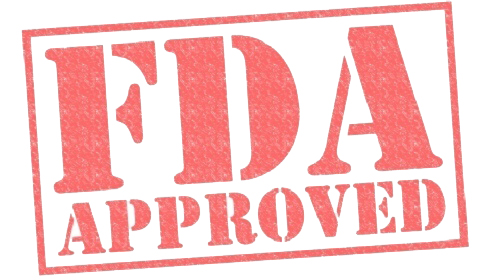
FDA Approves Zenocutuzumab-zbco for Rare Gene Fusion Cancers
On December 4, 2024, the United States Food and Drug Administration (FDA) awarded accelerated approval to zenocutuzumab-zbco, marketed as Bizengri by Merus N.V., which represents a significant breakthrough for patients with certain advanced malignancies. For adults with advanced, unresectable, or metastatic non-small cell lung cancer (NSCLC) and pancreatic adenocarcinoma with a rare neuregulin 1 (NRG1) gene fusion who have gotten worse after other systemic therapies, this approval is for them.
The FDA has approved the first systemic treatment for NSCLC and pancreatic adenocarcinoma patients with NRG1 gene fusions. These genetic changes are uncommon yet represent intriguing treatment targets.
According to physician Dr. Peter Lebowitz, "This decision reflects the growing ability to develop precision oncology therapies for hard-to-treat cancers."
The eNRGy trial (NCT02912949) enrolled 94 persons with NRG1-positive malignancies, including 64 with NSCLC and 30 with pancreatic adenocarcinoma. All patients presented with advanced or metastatic illness, which had progressed despite receiving normal treatment.
The approval of zenocutuzumab-zbco for the treatment of NRG1-positive tumors demonstrates its promising efficacy in tackling rare genetic abnormalities in advanced cancers. In clinical trials, the treatment produced notable results in two major patient populations.
For patients with non-small-cell lung cancer (NSCLC) harboring an NRG1 gene fusion, the therapy demonstrated an overall response rate (ORR) of 33% (95% CI: 22%, 46%), showing a significant tumor decrease in one-third of the treated group. Furthermore, the responses were long-lasting, with a median duration of response (DOR) of 7.4 months (95% CI: 4.0 to 16.6).
Meanwhile, in patients with advanced pancreatic cancer and similar genetic abnormalities, zenocutuzumab-zbco had an even higher ORR of 40% (95% CI: 23%, 59%). The duration of these responses ranged from 3.7 to 16.6 months, indicating that the medication may have a longer window of efficacy for many patients.
These findings, albeit modest in some measures, represent a significant advance for malignancies with previously dismal prognoses and limited therapeutic options. These findings, according to experts, demonstrate the potential of targeted medicines to improve the prognosis for individuals with uncommon and severe cancers. The persistence of responses, particularly in pancreatic cancer, a disease with historically poor survival rates, provides hope for improved quality of life and longer survival for affected individuals.
This therapeutic progress emphasises the importance of precision medicine and the necessity for further investigation of genetic factors in cancer. According to senior scientist Dr. Ann Roberts, "These results demonstrate how targeted therapies can transform outcomes for patients with rare genetic mutations."
Dr. Ann Roberts, a primary investigator, stated, "These results demonstrate how targeted therapies can transform outcomes for patients with rare genetic mutations."
The pooled safety group reported some adverse responses to zenocutuzumab-zbco, despite its generally well-tolerated nature. The most common side effects (≥10%) were diarrhea, musculoskeletal pain, fatigue, and nausea. Grade 3 or 4 laboratory abnormalities (≥10%) included elevated gamma-glutamyl transferase (GGT), reduced haemoglobin, sodium, and platelets.
The FDA issued a boxed warning for embryo-foetal harm, urging caution throughout pregnancy.
Zenocutuzumab-zbco benefitted from various FDA expedited programs, including priority review, breakthrough designation, and orphan drug status. These paths facilitate access to potential treatments for critical illnesses, particularly those with few treatment options.
According to regulatory expert Dr. Ellen Marks, "This approval highlights how the FDA's expedited programs ensure patients can access life-saving drugs while comprehensive data collection continues."
The recommended dose is 750 mg, given intravenously every two weeks until illness progression or severe toxicity. Before beginning treatment, patients must have next-generation sequencing (NGS) performed to confirm the presence of the NRG1 gene fusion.
The approval of zenocutuzumab-zbco is a watershed moment for precision medicine in oncology. It not only provides new hope for individuals with uncommon genetic mutations, but it also establishes a precedent for the development and approval of cancer medicines that target specific molecular causes.